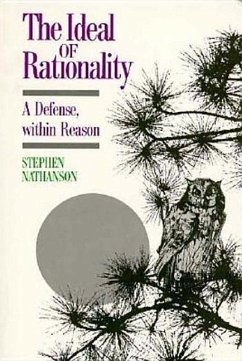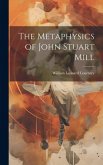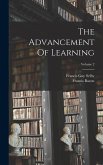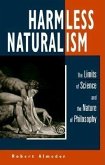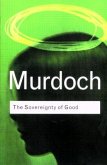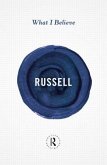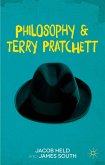This revised edition examines different notions of rationality, such as the means-end concept, hedonism and the "evil-avoidance" view, and then rejects them in favour of the theory that to act rationally is to act "for the best", a theory the author characterises as "critical pluralism".
The Ideal of Rationality presents an evaluation of all the main varieties of rationalism, in clear and jargon-free language. Different notions of rationality - such as means-end, conception, hedonism, and the evil-avoidance view - are examined and rejected, in favor of the theory that to act rationally is to 'act for the best', a theory Nathanson characterizes as "critical pluralism." Among present-day thinkers whose ideas are scrutinized are Richard Brandt, Bernard Gert, Gilbert Harman, John Kekes, Robert Nozick, Karl Popper, and John Rawls.
Hinweis: Dieser Artikel kann nur an eine deutsche Lieferadresse ausgeliefert werden.
The Ideal of Rationality presents an evaluation of all the main varieties of rationalism, in clear and jargon-free language. Different notions of rationality - such as means-end, conception, hedonism, and the evil-avoidance view - are examined and rejected, in favor of the theory that to act rationally is to 'act for the best', a theory Nathanson characterizes as "critical pluralism." Among present-day thinkers whose ideas are scrutinized are Richard Brandt, Bernard Gert, Gilbert Harman, John Kekes, Robert Nozick, Karl Popper, and John Rawls.
Hinweis: Dieser Artikel kann nur an eine deutsche Lieferadresse ausgeliefert werden.

